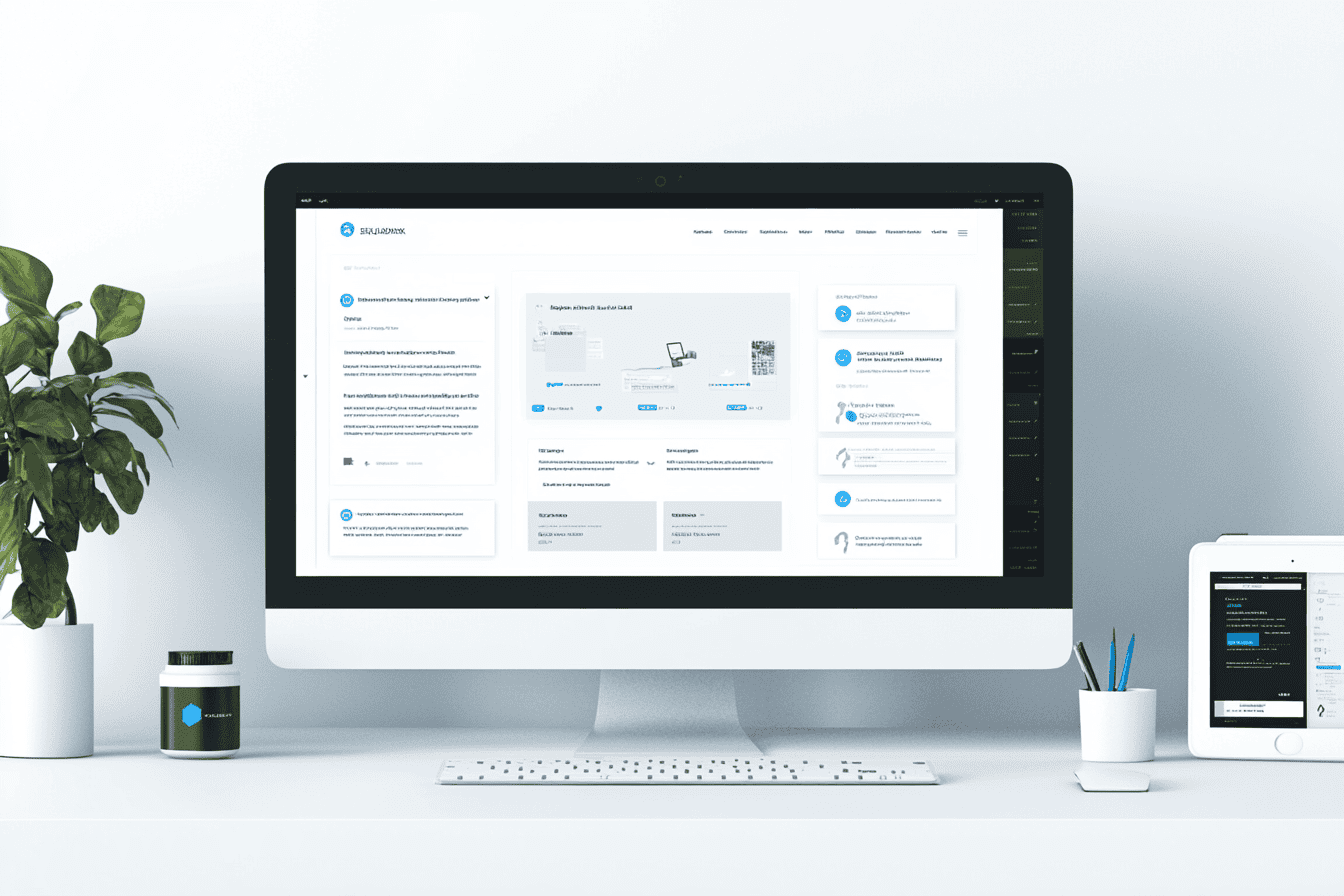Search Engine Optimization (SEO) for Small Businesses: A Complete Guide to Boosting Online Presence
In today’s digital landscape, Search Engine Optimization (SEO) has become a vital part of every small business’s marketing strategy. As the internet becomes increasingly competitive, small businesses need to rank higher in search engine results to attract customers. This guide will walk you through what SEO is, why it matters, and actionable steps to optimize your business for search engines.
1. What is SEO and Why Do Small Businesses Need It?
SEO is the process of improving your website’s visibility in search engine results pages (SERPs) like Google. It involves both technical and creative efforts aimed at driving organic (unpaid) traffic.
Why SEO Matters for Small Businesses
- Increased Visibility: Appearing on the first page of Google search results makes your business more visible to potential customers.
- Cost-Effective Marketing: Unlike paid ads, SEO continues to drive traffic without requiring ongoing investment.
- Credibility and Trust: Websites that appear at the top of search results are often viewed as more credible by users.
2. Key SEO Elements for Small Businesses
2.1 Keyword Research: Finding the Right Terms
Keyword research helps you identify the search terms your potential customers use. Small businesses should focus on:
- Long-tail keywords (e.g., “affordable web design services in Raleigh”) that are less competitive.
- Local keywords to attract nearby customers (e.g., “plumbing service near me”).
Use tools like Google Keyword Planner or Ubersuggest to discover relevant keywords.
Take a look at our detailed guide on keyword research for small businesses to learn practical strategies for finding the right keywords, improving rankings, and attracting more customers.
2.2 On-Page SEO: Optimizing Your Website Content
On-page SEO focuses on making individual web pages more search-engine-friendly. Here’s how:
- Title Tags & Meta Descriptions: Write compelling titles and descriptions using your target keywords.
- Headings: Structure your content with H1, H2, and H3 tags.
- Image Optimization: Use relevant keywords in alt tags and compress images for faster load times.
- Internal Linking: Link to other relevant pages on your website to improve navigation.
Explore our guide 10 Simple On-Page SEO Techniques for an in-depth review on SEO Optimization for your small business.
3. Local SEO for Small Businesses
Local SEO helps your business show up in local searches and Google Maps results. Here are the essential steps:
3.1 Optimize Google My Business (GMB)
- Create or claim your Google My Business profile.
- Add accurate business details: Name, address, phone number (NAP), and business hours.
- Upload photos and encourage customers to leave reviews.
3.2 Local Citations and Directories
- Submit your business details to local directories like Yelp and Yellow pages.
- Ensure that your business name, address, and phone number are consistent across all platforms.
Explore our comprehensive guide on Local SEO for Small Businesses to gain further insights.
4. Technical SEO: Optimizing the Backend
Technical SEO focuses on the structure and performance of your website. Key aspects include:
4.1 Mobile-Friendliness
With more users searching on smartphones, ensure your website is responsive and easy to navigate on mobile devices.
For additional information on mobile first approach to websites visit our blog.
4.2 Site Speed
Google prioritizes fast-loading websites. Compress images and reduce unnecessary scripts to improve speed.
Visit our guide to increase website speed for more information.
4.3 Structured Data Markup
Implement schema markup to help search engines understand your content better (e.g., product reviews, events, or FAQs).
Visit our guide on schema markup for SEO for more information.
5. Content Strategy for SEO
Creating valuable content is one of the most effective ways to improve your SEO. Here’s how you can develop a content strategy:
- Blog Regularly: Publish articles on topics relevant to your business (e.g., “How to Choose the Best Plumbing Service”).
- Customer Testimonials: Use testimonials as content to build trust and improve search visibility.
- FAQs: Create a Frequently Asked Questions page to answer common customer inquiries.
- Video Content: Use YouTube to post tutorials and how-to videos that link back to your website.
Visit our guide on content strategy for SEO for additional information.
6. Building Backlinks: Strengthen Your Site’s Authority
Backlinks are links from other websites that point to your site. Google views them as a vote of confidence. Here are some ways to build backlinks:
- Guest Blogging: Write articles for other blogs in exchange for a link back to your site.
- Partner with Local Influencers: Ask influencers to feature your business in their content.
- Get Listed on Industry Websites: Join local chambers of commerce or industry associations.
7. Measuring SEO Success: Key Metrics to Track
Tracking performance helps you understand if your SEO efforts are working. Key metrics include:
- Organic Traffic: Number of visitors from search engines.
- Bounce Rate: Percentage of users who leave your site after viewing only one page.
- Keyword Rankings: How well your pages rank for target keywords.
- Conversion Rate: Percentage of visitors who take a desired action (e.g., filling out a contact form).
Use tools like Google Analytics and Google Search Console to monitor these metrics.
8. SEO Challenges Small Businesses Face
While SEO offers numerous benefits, small businesses often encounter these challenges:
- Time Constraints: SEO is a long-term strategy that requires consistent effort.
- Limited Budgets: Hiring SEO experts may not always be affordable.
- Algorithm Updates: Search engine algorithms change frequently, impacting rankings.
9. Affordable SEO Tools for Small Businesses
Here’s a list of budget-friendly tools to help small businesses manage their SEO:
- Google Analytics: Track website performance.
- Google Search Console: Monitor site health and keyword rankings.
- Yoast SEO: Optimize content for search engines.
- Ubersuggest: Conduct keyword research.
10. Conclusion: SEO is a Long-Term Investment for Small Businesses
SEO offers small businesses an excellent opportunity to grow organically, reach their target customers, and build credibility. By focusing on local SEO, valuable content creation, and technical optimization, small businesses can compete effectively with larger competitors. While the journey may take time, the rewards—higher search rankings, more traffic, and increased conversions—are well worth the effort.
If you’re a small business looking to improve your SEO, let Faith Web Designers guide you. We offer tailored SEO services designed to meet the unique needs of small businesses.





